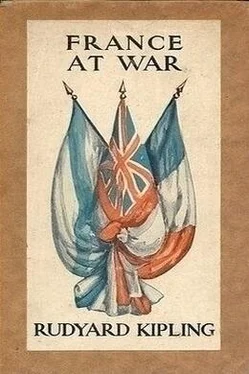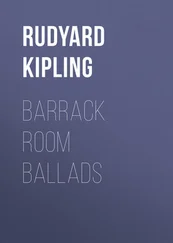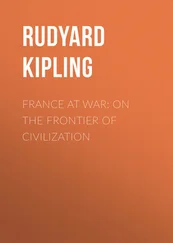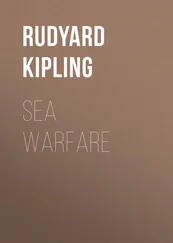Rudyard Kipling - France at War
Здесь есть возможность читать онлайн «Rudyard Kipling - France at War» весь текст электронной книги совершенно бесплатно (целиком полную версию без сокращений). В некоторых случаях можно слушать аудио, скачать через торрент в формате fb2 и присутствует краткое содержание. Год выпуска: 2014, Издательство: epubBooks Classics, Жанр: Биографии и Мемуары, prose_military, на английском языке. Описание произведения, (предисловие) а так же отзывы посетителей доступны на портале библиотеки ЛибКат.
- Название:France at War
- Автор:
- Издательство:epubBooks Classics
- Жанр:
- Год:2014
- ISBN:нет данных
- Рейтинг книги:4 / 5. Голосов: 1
-
Избранное:Добавить в избранное
- Отзывы:
-
Ваша оценка:
- 80
- 1
- 2
- 3
- 4
- 5
France at War: краткое содержание, описание и аннотация
Предлагаем к чтению аннотацию, описание, краткое содержание или предисловие (зависит от того, что написал сам автор книги «France at War»). Если вы не нашли необходимую информацию о книге — напишите в комментариях, мы постараемся отыскать её.
and
.
France at War — читать онлайн бесплатно полную книгу (весь текст) целиком
Ниже представлен текст книги, разбитый по страницам. Система сохранения места последней прочитанной страницы, позволяет с удобством читать онлайн бесплатно книгу «France at War», без необходимости каждый раз заново искать на чём Вы остановились. Поставьте закладку, и сможете в любой момент перейти на страницу, на которой закончили чтение.
Интервал:
Закладка:
Then they talked about the lives of guns; what number of rounds some will stand and others will not; how soon one can make two good guns out of three spoilt ones, and what crazy luck sometimes goes with a single shot or a blind salvo.
LESSON FROM THE "BOCHE"
A shell must fall somewhere, and by the law of averages occasionally lights straight as a homing pigeon on the one spot where it can wreck most. Then earth opens for yards around, and men must be dug out,—some merely breathless, who shake their ears, swear, and carry on, and others whose souls have gone loose among terrors. These have to be dealt with as their psychology demands, and the French officer is a good psychologist. One of them said: "Our national psychology has changed. I do not recognize it myself."
"What made the change?"
"The Boche. If he had been quiet for another twenty years the world must have been his—rotten, but all his. Now he is saving the world."
"How?"
"Because he has shown us what Evil is. We—you and I, England and the rest—had begun to doubt the existence of Evil. The Boche is saving us."
Then we had another look at the animal in its trench—a little nearer this time than before, and quieter on account of the mist. Pick up the chain anywhere you please, you shall find the same observation–post, table, map, observer, and telephonist; the same always–hidden, always–ready guns; and same vexed foreshore of trenches, smoking and shaking from Switzerland to the sea. The handling of the war varies with the nature of the country, but the tools are unaltered. One looks upon them at last with the same weariness of wonder as the eye receives from endless repetitions of Egyptian hieroglyphics. A long, low profile, with a lump to one side, means the field–gun and its attendant ammunition–case; a circle and slot stand for an observation–post; the trench is a bent line, studded with vertical plumes of explosion; the great guns of position, coming and going on their motors, repeat themselves as scarabs; and man himself is a small blue smudge, no larger than a foresight, crawling and creeping or watching and running among all these terrific symbols.
TRAGEDY OF RHEIMS
But there is no hieroglyphic for Rheims, no blunting of the mind at the abominations committed on the cathedral there. The thing peers upward, maimed and blinded, from out of the utter wreckage of the Archbishop's palace on the one side and dust–heaps of crumbled houses on the other. They shelled, as they still shell it, with high explosives and with incendiary shells, so that the statues and the stonework in places are burned the colour of raw flesh. The gargoyles are smashed; statues, crockets, and spires tumbled; walls split and torn; windows thrust out and tracery obliterated. Wherever one looks at the tortured pile there is mutilation and defilement, and yet it had never more of a soul than it has to–day.
Inside—("Cover yourselves, gentlemen," said the sacristan, "this place is no longer consecrated")—everything is swept clear or burned out from end to end, except two candlesticks in front of the niche where Joan of Arc's image used to stand. There is a French flag there now. [And the last time I saw Rheims Cathedral was in a spring twilight, when the great west window glowed, and the only lights within were those of candles which some penitent English had lit in Joan's honour on those same candlesticks.] The high altar was covered with floor–carpets; the pavement tiles were cracked and jarred out by the rubbish that had fallen from above, the floor was gritty with dust of glass and powdered stone, little twists of leading from the windows, and iron fragments. Two great doors had been blown inwards by the blast of a shell in the Archbishop's garden, till they had bent grotesquely to the curve of a cask. There they had jammed. The windows—but the record has been made, and will be kept by better hands than mine. It will last through the generation in which the Teuton is cut off from the fellowship of mankind—all the long, still years when this war of the body is at an end, and the real war begins. Rheims is but one of the altars which the heathen have put up to commemorate their own death throughout all the world. It will serve. There is a mark, well known by now, which they have left for a visible seal of their doom. When they first set the place alight some hundreds of their wounded were being tended in the Cathedral. The French saved as many as they could, but some had to be left. Among them was a major, who lay with his back against a pillar. It has been ordained that the signs of his torments should remain—an outline of both legs and half a body, printed in greasy black upon the stones. There are very many people who hope and pray that the sign will be respected at least by our children's children.
IRON NERVE AND FAITH
And, in the meantime, Rheims goes about what business it may have with that iron nerve and endurance and faith which is the new inheritance of France. There is agony enough when the big shells come in; there is pain and terror among the people; and always fresh desecration to watch and suffer. The old men and the women and the children drink of that cup daily, and yet the bitterness does not enter into their souls. Mere words of admiration are impertinent, but the exquisite quality of the French soul has been the marvel to me throughout. They say themselves, when they talk: "We did not know what our nation was. Frankly, we did not expect it ourselves. But the thing came, and—you see, we go on."
Or as a woman put it more logically, "What else can we do? Remember, we knew the Boche in '70 when you did not. We know what he has done in the last year. This is not war. It is against wild beasts that we fight. There is no arrangement possible with wild beasts." This is the one vital point which we in England must realize. We are dealing with animals who have scientifically and philosophically removed themselves inconceivably outside civilization. When you have heard a few—only a few—tales of their doings, you begin to understand a little. When you have seen Rheims, you understand a little more. When you have looked long enough at the faces of the women, you are inclined to think that the women will have a large say in the final judgment. They have earned it a thousand times.
III
Battle Spectacle and a Review
Travelling with two chauffeurs is not the luxury it looks; since there is only one of you and there is always another of those iron men to relieve the wheel. Nor can I decide whether an ex–professor of the German tongue, or an ex–roadracer who has lived six years abroad, or a Marechal des Logis, or a Brigadier makes the most thrusting driver through three–mile stretches of military traffic repeated at half–hour intervals. Sometimes it was motor–ambulances strung all along a level; or supply; or those eternal big guns coming round corners with trees chained on their long backs to puzzle aeroplanes, and their leafy, big–shell limbers snorting behind them. In the rare breathing–spaces men with rollers and road metal attacked the road. In peace the roads of France, thanks to the motor, were none too good. In war they stand the incessant traffic far better than they did with the tourist. My impression —after some seven hundred miles printed off on me at between 60 and 70 kilometres—was of uniform excellence. Nor did I come upon any smashes or breakdowns in that distance, and they were certainly trying them hard. Nor, which is the greater marvel, did we kill anybody; though we did miracles down the streets to avoid babes, kittens, and chickens. The land is used to every detail of war, and to its grime and horror and make–shifts, but also to war's unbounded courtesy, kindness, and long–suffering, and the gaiety that comes, thank God, to balance overwhelming material loss.
Читать дальшеИнтервал:
Закладка:
Похожие книги на «France at War»
Представляем Вашему вниманию похожие книги на «France at War» списком для выбора. Мы отобрали схожую по названию и смыслу литературу в надежде предоставить читателям больше вариантов отыскать новые, интересные, ещё непрочитанные произведения.
Обсуждение, отзывы о книге «France at War» и просто собственные мнения читателей. Оставьте ваши комментарии, напишите, что Вы думаете о произведении, его смысле или главных героях. Укажите что конкретно понравилось, а что нет, и почему Вы так считаете.












